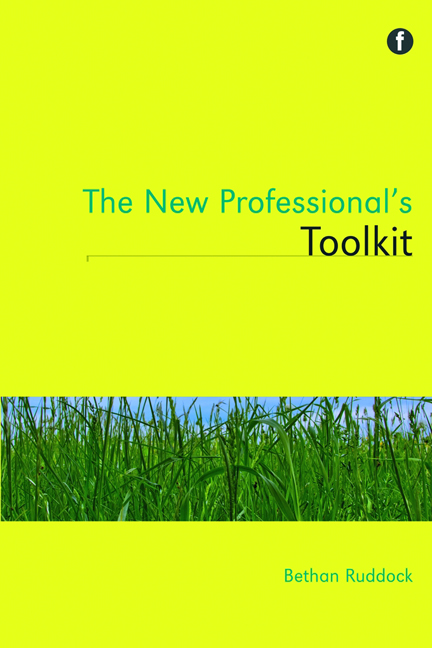Book contents
- Frontmatter
- Dedication
- Contents
- Preface
- Acknowledgements
- Glossary
- Introduction
- 1 Project management
- 2 Teaching, training and communicating
- 3 Meeting your users' needs and measuring success
- 4 Marketing your service and engaging stakeholders
- 5 Using technologies
- 6 Getting and staying online
- 7 Generating funding and doing more with less
- 8 Managing money, budgets and negotiating
- 9 Information ethics and copyright
- 10 Upskilling and professional development
- 11 Networking and promoting yourself
- 12 Professional involvement and career development
- Conclusion
- Appendix: Budgeting example spreadsheet
- Index
8 - Managing money, budgets and negotiating
Published online by Cambridge University Press: 08 June 2018
- Frontmatter
- Dedication
- Contents
- Preface
- Acknowledgements
- Glossary
- Introduction
- 1 Project management
- 2 Teaching, training and communicating
- 3 Meeting your users' needs and measuring success
- 4 Marketing your service and engaging stakeholders
- 5 Using technologies
- 6 Getting and staying online
- 7 Generating funding and doing more with less
- 8 Managing money, budgets and negotiating
- 9 Information ethics and copyright
- 10 Upskilling and professional development
- 11 Networking and promoting yourself
- 12 Professional involvement and career development
- Conclusion
- Appendix: Budgeting example spreadsheet
- Index
Summary
Introduction
At some point in your career you are going to have to talk money. Even if you never plan to be in a position with budget handling responsibilities, there are many other situations where you will find yourself involved with finance. You might be running a conference or event, and need to decide on charges, sponsorship packages, deal with speaker expenses, and negotiate deals with nearby hotels. Many job adverts now describe salary as ‘according to experience’ or ‘negotiable’, so you will need to be prepared to negotiate for the wage you want. You may be responsible for buying or maintaining subscriptions to services, handling fine or photocopying payments, or deciding how much to charge for commercial photography.
Depending on the organization you work for, you might have to bid internally for your funding, and make a case for all your expenditures. This is known as zero-sum budgeting, when you cannot rely on automatically receiving any money. Even if your department is a core item in the organizational budget, and is guaranteed some funds, you may find that your budget is being cut, and you are asked to find substantial savings. It is impossible to justify expenditure or identify areas where you can economize if you don't have a good understanding of your budget, and well organized documentation.
Budgets
Managing money is an important skill in all management positions. In library and information work, even if you don't run a team or a department, you will often have some financial responsibility, such as an acquisitions budget for your area. If you are a solo practitioner you might have the budget of the whole library to run.
Managing budgets and money is also a large part of project management, and showing that your organization is financially capable is important for getting external funding – no one is going to give you money if they think you are likely to mishandle it. A well managed library budget can also ‘give a professional image to the library and help raise its profile amongst stakeholders’ (Horsfield, 2010).
Therefore a knowledge of budgets and how they work is vital for any development work you would like to do in your service – even if you won't have control of the money yourself at the end, you will need to know enough to put in a good, feasible proposal.
- Type
- Chapter
- Information
- The New Professional's Toolkit , pp. 129 - 140Publisher: FacetPrint publication year: 2012



